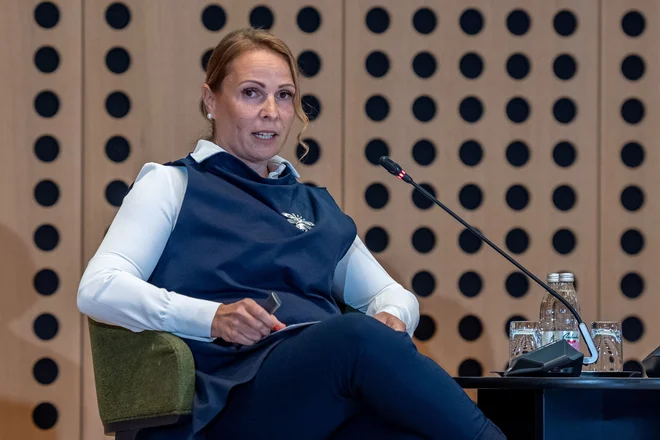Green Light Media Act, also forecasting the Constitutional Court’s judgment

Per Breaking a meeting of the Culture Committee It seemed already that today the second hearing of the Media Act will pass without complications … but is the chairwoman of the Culture Committee Sara Žibrat gave a second reprimand and consequently deprivation of the word to the SDS Member Andre Hoivik Due to his labels of « hysterical » MP Freedom Tamari Vonta.
They argued on an amendment, with which coalition MPs suggested that the Agency for Competition Protection (AVK) should take over the concentration agency instead of the concentration agency.
As with the deprivation of the voice, the coalition unanimously supported the proposed amendments and the bill, the SDS MPs and the NSi voted against – some amendments were united. Hovik, however, protested quietly with the poster: “Today me, tomorrow you. Stop censorship. ”A tumultuous debate can also be expected at a National Assembly meeting. The proposal is expected to be discussed at the April meeting. Considering the many allegations of SDS and NSi on potential unconstitutionality, it can also be expected that the Media Act will be a pilgrimage to the Constitutional Court.
Both opposition parties are most upset by the proposed Article 53, which speaks of the prohibition of promoting violence and hatred and the enforcement of the committing crimes of terrorism or even more intended. The SDS seems unacceptable that they will be able to judge the media or AKOS inspectorate. « Don’t let an opinion you don’t like, » she asserted Alenka Jeraja SDS MP, who has already hinted that this article could end up in the Constitutional Court.
Despite his concerns, the coalition insists, among other things, because it is one of the recommendations of a strategic world to prevent hate speech. They see sufficient protection in the possibility of appealing to the Administrative Court.
Key goals of the Media Act
First and foremost, the Ministry of Culture wants to do more transparently on the European act on freedom, ownership and possible state funding. Data disclosure is one of the conditions for obtaining financial assistance. This one will rise. It is not quite clear for how much, since the Ministry of Finance is by no means favorable to the proposal of the Association of Journalists Slovenia in order to enter the number in the law. In addition to the mechanism for co -financing program content in the media, the Media Act is expected to re -introduce the basis for granting state aid for the digital transition of print media and support for digital media. The total weight of all measures could be around eight million. In roughness, however, for the eligibility of the proposal, it prescribes the basis of the criterion: from the fact that the media is not under the dominant influence of public entities or political parties, they ensure transparency of information about the ownership of the media, state advertising and disclosure of the conflict of interest to the fact that, after the amendment filed, they are not legally sentenced to expanding hatred or disrespecting work legislation.







